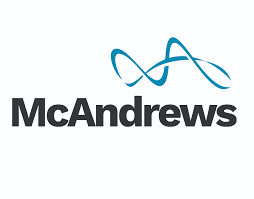Pat Arnold discusses advantages to a trademark owner of initiating a proceeding before the Trademark Trial and Appeal Board (TTAB) when also facing the choice of filing a lawsuit in federal court.
A trademark owner that needs to enforce its rights may often face a choice between initiating an opposition or cancellation proceeding before the Trademark Trial and Appeal Board (“TTAB”) or filing a regular lawsuit in federal court. Aside from the lower cost of a TTAB proceeding (in most instances, anyway), TTAB proceedings offer several advantages to a trademark owner if the owner assesses the case wisely. Here are the top five:
1. INFLUENTIAL IMPACT. The Supreme Court has given TTAB decisions more influence on future legal claims than ever before. See B&B Hardware, Inc. v. Hargis Industries, Inc., 135 S.Ct. 1293 (2015) (holding that decisions concerning likelihood of confusion can have a preclusive effect in subsequent district court infringement actions).
Accordingly, while the TTAB is an administrative tribunal that adjudicates only the right to register, and not the broader question of the right to use, a trademark (see e.g., First Health of the Carolinas Inc. v. Carefirst of Md. Inc., 479 F.3d 825 (Fed. Cir. 2007)), the TTAB’s decision still may impact whether that trademark can be used in the future. And this adds some leverage for a trademark holder at a cost that is likely much less than the cost incurred in a district court litigation.
2. FAME STATUS. If the owner’s trademark has been used for a long time and has attained some notoriety, the TTAB is a good forum to secure a holding that the mark is famous. A party can put a significant amount of evidence into the record, usually simply with a witness declaration and accompanying documentation. A subsequent finding that a trademark is famous can be used as an “extra threat” when writing cease and desist letters to future infringers.
In addition, once the owner has submitted its evidence of fame in this rather easy format, the owner will have the evidence “stored for posterity,” so to speak, for all further trademark enforcement and policing needs.
3. THE TTAB IS ON TARGET. The TTAB is a good forum to ensure that the owner adjudicates only trademark issues with its opponent. In that regard, many trademark cases have peripheral claims associated with them, such as false advertising or other forms of unfair competition, but again the TTAB adjudicates only the right to register. See, e.g., Person’s Co. v. Christman, 900 F.2d 1565 (Fed. Cir. 1990).
While a trademark owner may wish to have all of those claims litigated at once in one federal lawsuit, there may be situations where litigating only the main trademark claim makes sense. For example, litigating the trademark claim can lead to a resolution of all of the claims by way of a settlement — at a much more efficient cost than that involved with prosecuting all of the claims.
In addition, where the trademark owner is the defendant in a TTAB proceeding, which means that the plaintiff has challenged the owner’s trademark on validity grounds, the owner’s knee-jerk reaction may often be to file suit in federal court for trademark infringement and then request the TTAB to stay the TTAB proceeding. The TTAB will almost certainly grant the stay. See 37 § 2.117.
The owner should carefully consider, however, whether the plaintiff-infringer potentially has any of the peripheral claims listed above. Keeping the litigation in the TTAB (i.e., not attempting to remove the case to federal court) may have the benefit of keeping all such peripheral claims outside the case where such claims can “die on the vine,” so to speak.
4. LICENSEE LEVERAGE. The TTAB is also a good choice of forum when a trademark owner desires to take action against a former licensee. That is because, while many federal circuits have curtailed the doctrine of licensee estoppel, the TTAB expressly applies the doctrine of licensee estoppel to all validity issues a trademark defendant can raise. See e.g., Freeman v. Nat’l Ass’n of Realtors, 64 USPQ 2d 1700, 1704 (TTAB 2002) (claim of genericness barred by licensee estoppel); Leatherwood Scopes Int’l v. Leatherwood, 63 USPQ 2d 1699, 1703 (TTAB 2002) (claim of naked licensing similarly barred).
5. INJUNCTION JUNCTION. A trademark owner may also be able to effectively obtain an injunction from the TTAB even though, of course, the TTAB has no power to issue injunctions. At a minimum, a TTAB decision is at least persuasive to any federal court. This may be important to a trademark owner when the owner’s trademark registration has a reasonably broad identification of goods/services that will be found to be legally identical to some subset of services of the defendant. See e.g., Christian Broadcasting Network, Inc. v. ABS-CBN Int’l, 84 USPQ 2d 1560, 1567 (TTAB 2007) (“entertainment services in the nature of televised religious, educational, news and variety programs” are legally identical to “entertainment, namely, in the nature of variety television shows”).
In this situation, even if the “real world” marketplace offers some apparent differences between the parties’ respective goods/services, the TTAB’s mandate is to consider only the parties’ identifications. This can be the difference between obtaining a holding of likelihood of confusion and failing to do so. And, in many cases, obtaining such a holding will force the defendant to change its mark.
When a party has a choice between proceeding in the TTAB or a federal district court, the party will be wise to think about which forum provides the best “bang for the buck.” In the above situations and others, the TTAB wins out.

Pat Arnold is a shareholder at McAndrews, Held & Malloy Ltd. and has been practicing intellectual property law at the firm since he graduated from law school in 1990. While his practice has concentrated on patent, trademark, and copyright litigation, he also assists clients in prosecution, counseling, and licensing. He has been lead trial counsel on many lawsuits and has extensive experience with all pretrial, trial, and post-trial activities in the federal courts. He is based in Chicago and can be reached at [email protected].


